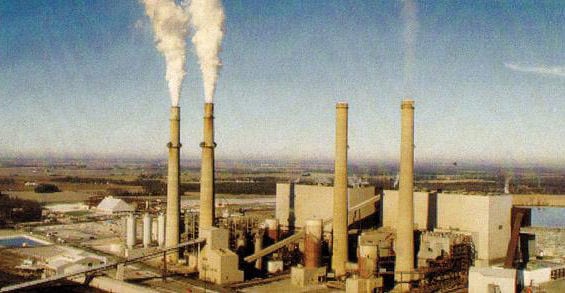by Jon Winkler
Here in Indiana, it can be easy to take for granted how reliable our state’s energy grid is. We don’t experience the rolling blackouts and massive price swings that states like California do, largely because we’ve long powered our state on the back of our abundant supply of coal-powered energy. However, political pressures are causing many coal plants to shut down prematurely, leaving widening gaps in access to reliable energy. Indiana’s lawmakers need to take action to ensure that reliable energy in our state doesn’t become a thing of the past.
Across the nation, many leaders are sounding the alarm about the loss of reliable energy and what it means for Americans. Kentucky Senate President Robert Stivers wrote a powerful letter to Kentucky’s Public Services Commission (PSC) concerning the potential closure of seven fossil fuel-fired power plants. To combat this effort, President Stivers laid out an authoritative account of how premature coal-fired power plant closures break Kentucky state law, reduce grid reliability, raise energy prices, and endanger the health and safety of Kentuckians.
President Stivers’ words ring true beyond the great state of Kentucky. In other coal-rich states like ours, premature coal plant closures represent one of the most significant dangers to public safety of our lifetimes. Indiana is on track to close all its coal plants within the decade, which will place Hoosiers at risk of electricity shortages for the foreseeable future. Hoosiers need enough energy to run their hospitals, factories, and homes. If Indiana does not heed President Stivers’ warning, then Hoosiers will likely experience further price hikes, life-endangering blackouts, economic recession, and deadly winters.
Kentucky’s state legislature has already made significant steps to stop premature coal plant closures by enacting Senate Bill 4, which states that before a power plant can close, it must be replaced with new facilities that are ready for deployment, maintain or improve grid reliability, provide enough energy reserves, and do not harm Kentucky’s ratepayers. The law keeps reliable and affordable energy sources like coal intact until they can be fully and adequately replaced. Coal is one of the cheapest and most reliable forms of energy, so it makes sense that we should not do away with coal until other resources match its reliability and price. Indiana would be wise to follow suit and pass similar legislation.
On top of that, Stivers definitively proves that coal is consistently more reliable than other apparently reliable energy sources like natural gas. In 2022, a severe winter storm hit Kentucky, causing widespread blackouts. Many of the power outages during this storm occurred because of a single frozen valve in a natural gas pipeline. Stivers correctly argues that Americans must reconsider being dependent on only natural gas for dispatchable energy if one pipeline valve malfunction can lead to people freezing to death. In contrast, coal-fired power plants retain 30 to 60 days of reserve energy that can be deployed at any point, no matter what, and it is much easier to transmit electricity from coal-powered plants than other sources.
Indiana will soon have to face facts. We have been transitioning too quickly from reliable, dispatchable energy sources to renewables for the past two decades, putting us at risk. Our need for reliable energy will only grow given the development of new technologies like electric vehicles and cutting-edge manufacturing facilities. If Indiana doesn’t have reliable, dispatchable energy, then Hoosiers won’t be able to heat their homes or go to work. Let’s heed President Stivers’ advice and not put all our eggs in one basket. We must keep coal in Indiana.
Jon Winkler is chairman of the Spencer County Republican Party.














